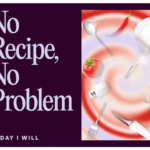Kylie Cheung
Author
-
Today I Will...

TALK TO KYLIE ABOUT HER BOOK.
“State violence creates the conditions for gender-based violence, and to that end, state and gender-based violence are inextricable from each other. The state itself is an abuser, and rape culture—which is the normalization of sexual violence and dehumanization of survivors—fundamentally drives our policies and culture.”
Class is in session, and reporter and author Kylie Cheung (she/her) is teaching today. In her own words, her new book, Survivor Injustice, “explores how state violence entails more than viral videos capturing acts of police brutality, but also entails the policies that deny people the resources they need to live and thrive, the policies that imprison or entrap abuse victims in poverty, that force people to stay with abusive partners for healthcare or shelter, or force people to remain pregnant against their will.”
The book is full of information drawn from interviews with survivors, lawyers, activists, abortion providers, domestic violence experts, and Kylie’s own experiences. So, we caught up with her to ask some Qs about the book, why she wrote it, and what she learned while writing.
What inspired you to write this book?
This began as a project in 2020 to help understand domestic violence as an underexplored form of voter suppression, but amid developments throughout recent years—the overturning of Roe v. Wade, for example, and several high-profile domestic abuse cases—and certainly, in 2020, the important conversations about abolition, policing, and the impacts of the white supremacist police state on survivors, this expanded into a much broader exploration of survivor injustice.
In the book, I also try to drive home that domestic violence is not just a “private” issue, as it’s long been understood—think: when powerful men or male artists are outed, but people say they shouldn’t be pushed out of their industries over “private” matters, when sexual violence is actually a major labor issue. Domestic violence has tremendous political implications and impacts on people’s access to public life, to voting, to healthcare, and more. Domestic violence is a critical threat to democracy.
You weave in personal narrative throughout the book which is otherwise highly-researched. What made you decide to do that?
It’s so important to me that survivors never feel pressured to identify themselves or share stories that they don’t feel safe sharing. There were aspects of the nascence of MeToo in the 2010s that were a bit unsettling for me, where there was so much pressure imposed on survivors to incur risk to themselves and speak out. And at the same time, storytelling—when you feel ready to do so—is such a powerful tool, a way to connect and build community with others, tell other survivors they’re not alone, and also validate your own experience. For me, working on this book, I felt ready, and my lived experiences have really shaped my voice and colored my approach to reporting and writing on these issues for years, so including references to my life and my journey felt appropriate. That might be different for other survivors, and their experience is just as valid.
This book really masterfully connected the dots between domestic violence and state violence. How does what happens in the home reflect our society?
When someone’s partner blocks them from voting or controls their vote, abuse victims lose what could be an opportunity to challenge policy outcomes and lawmakers who are enacting the very laws that might be entrapping them in abusive situations. Ex: Lawmakers who pass abortion bans, or lawmakers who keep health care inaccessible and unaffordable, which can force someone to stay in an abusive situation. Victims are denied a voice in the very policymaking processes that decide whether they can access the resources they need to be safe and free.
What I try to stress in the book is that sadly, home isn’t a safe space for everyone—for abuse victims, for queer youth, etc. A huge issue is that, really ever since the ’70s, ’80s, where “crime wave” panic really originated, we see sexual violence framed as this street-based crime perpetrated by strangers, despite the reality that gender-based violence is overwhelmingly committed by someone the victim knows or in their own home. This is largely about reifying the imagined need for investments in policing. But it erases the vast majority of domestic violence. In 2020, that was very much the narrative we were told, that home is the safest place for everyone, and there were few accommodations or resources provided to people for whom the home wasn’t safe, which was particularly concerning during a major election year.
Can you share a bit about how the carceral system fails survivors and how that affects them (and all of us)?
In writing this book, I tried to take a number of approaches to really highlight how the carceral system actively punishes, criminalizes, and traumatizes victims, through the statistics we have available and the gutting stories survivors, particularly criminalized survivors, have shared. The numbers really speak for themselves—survivors are more likely to be criminalized than perpetrators of abuse, through the sexual assault-to-prison pipeline. We know that when victims call the police to report intimate partner violence, about a quarter say that they’re arrested or threatened with arrest themselves. We know that after experiencing sexual violence, victims become substantially more vulnerable to criminalization, sometimes because they’re bankrupted or experience significant financial ramifications from the assault, pushing them into poverty and toward survival crimes. We know that sex workers who experience sexual violence are systematically dehumanized by law enforcement and more likely to be criminalized.
And we also know that police are just not fundamentally equipped to understand, help, or practice basic compassion toward survivors. Many have self-identified as abusers themselves, police routinely sexually assault people—and, in fact, a loophole law allowed them to legally get away with this for years. Surveys have shown the majority of police believe the majority of reported sexual assaults are false reports, and most police don’t believe marital rape is real. And a 1996 report compiling police data indicating 8% of rapes are falsely reported shows that the FBI marked rapes and sexual assaults that didn’t involve a weapon or were reported by people with a prior relationship to their assailants—which is most assaults—as “false reports.” I could go on for a very long time about any number of damning reports and statistics available to us, certainly about the prevalence of sexual assault in prison, and the reality that prison could never be a “solution” to sexual assault when prison itself is the site of so much sexual violence. The evidence is just so overwhelming that the criminal system punishes survivors and even encourages sexual violence, that using survivors as a talking point to justify prisons and policing is just willfully ignorant at this point.
What was the most surprising thing you learned while writing this book?
I was surprised by some of the reactions I received from friends and loved ones while I was writing this, where they’d tell me the idea that domestic violence can amount to voter suppression was such an obvious outcome when I presented it to them, but one that they had just never really thought of. It was interesting to me because survivors I spoke to who said their partners had tried to control their votes similarly said that for a long time they hadn’t considered how political control and coercion were forms of abuse, because they were experiencing so many different forms of abuse simultaneously, which absolutely makes sense. When you’re experiencing physical violence or financial control or other emotional abuse, you might not be actively identifying all of the other less obvious abusive acts that sort of slip through the cracks. I’d also spoken to lawyers and advocates who said that victims don’t always immediately identify reproductive coercion—for example, tampering with a partner’s birth control, trying to force them to become pregnant or force them to have an abortion—as abuse, when there are a number of other forms of abuse happening at the same time.
These topics are really heavy. Do you do anything to decompress while you work on these issues?
In doing this work, you’re definitely exposed to the most heartbreaking, viscerally upsetting things, and I wish I had a better answer for this! I definitely value the friendships and support systems I have, and I find so much inspiration in the incredible organizing work that survivors and people working in the reproductive justice space do against all odds, all the time. What really helps me do this work is that at the end of the day, I’d just so much rather do it than not do it. It’s devastating, but it’s also empowering and fulfilling to be able to challenge the horrific narratives about survivors and abortion patients and people who are criminalized, and I love to do work that helps people think in new ways and hopefully moves them to be a part of this work.
Is there anything else you’d like to add?
Overall, I really just hope that anyone who reads my book is able to take away a deepened understanding of what state violence is—that state violence is oppressive policies, it’s a criminal system that criminalizes poverty and being a survivor, it’s abortion bans that invade people’s bodies and force them to give birth. Violence is children going hungry while the U.S. military receives $1T per year, violence is the Supreme Court imposing forced pregnancy and birth on us—and we should be outraged and scandalized by all of that, not protesters outside Brett Kavanaugh’s house or confronting Kyrsten Sinema in the bathroom. That was really a big goal of mine in writing this.



